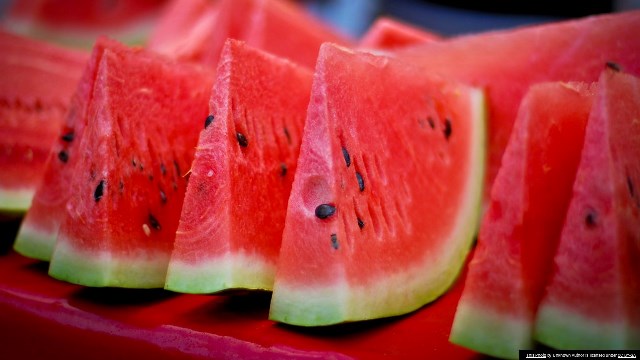Last Updated on October 31, 2024 by Dr. Abadullah Sajid Bashir
Watermelon is a juicy fruit composed mostly of water, containing 92 percent water content. It is highly beneficial for the human body, playing a crucial role in replenishing water deficits. The fruit, with its red color and sweet taste, is rich in vitamins such as Vitamin C, Vitamin B, Vitamin A, and Vitamin B-6, along with potassium and other nutrients. Watermelon also possesses antioxidant properties.
Continuous consumption of watermelon is believed to contribute to the strengthening of bones and muscles, thanks to its rich nutrient profile. Lycopene, found in abundance in watermelon, is known to aid in protecting eyesight.
Despite its numerous advantages, it’s important to note that watermelon is a fruit high in sugar, specifically fructose sugar, categorizing it among high FODMAP fruits.
What is a FODMAP?
Junk food, characterized by high levels of carbohydrates and sugar, may not be fully digested. There are two types: high food map and low food map.
High FODMAP foods: Contains an excessive amount of small chain sugar, which the stomach cannot fully absorb.
Low FODMAP foods: Has a lower small chain sugar content and is completely absorbed in the stomach.
Food Choices
People consume a variety of nutrients through their food, consisting of lipids, proteins, and carbohydrates. The digestion of food into energy allows individuals to perform daily activities. It is crucial for individuals to assess their digestive systems before consuming certain foods to avoid issues such as digestive disorders, diarrhea, constipation, etc.
Particular attention is necessary for individuals with Irritable Bowel Syndrome (IBS). They must steer clear of foods high in oils, fried foods, and those with high sugar content.
What is IBS?
IBS is a chronic condition characterized by symptoms like abdominal pain, gas, indigestion, constipation, diarrhea, cramping, and mental disturbance. While not fatal, IBS persists throughout a person’s life, making it challenging. Patients strive to manage symptoms through various methods.
For Detailed and comprehensive information about Irritable Bowel Syndrome (IBS) Click Here
IBS and Watermelon
While watermelon is generally beneficial, it may not be suitable for individuals with IBS. Consumption can lead to an upset stomach, and cramping. Gas produced by watermelon can induce indigestion symptoms in IBS patients. Thus, minimizing watermelon intake is advisable to prevent symptom flare-ups.
If symptoms occur after eating watermelon:
- Stop eating
- Try to sleep
- Consult a doctor for appropriate medication.
Article Written By:
- Abadullah Sajid Bashir
Reviewed By:
- Dr. Muhammad Zubair Chaudhary
- Syeda Noor-ul-Ain Naqvi
For Reviewer Detail Click Here

